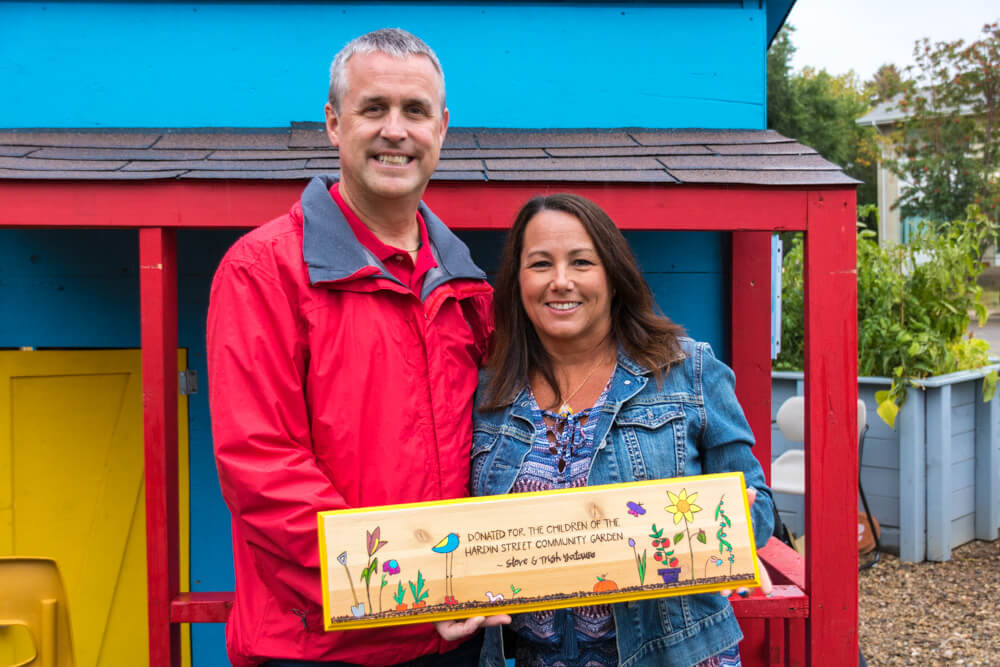In a recent news item we shared insights from Zimbabwe about what makes communities resilient and what resilience looks like at a local level. Here we share a story of community recovery and resilience from Canada. Whilst the context and nature of this disaster are very different, the fundamentals of what makes for resilience are the same. Communities are resilient when they are inclusive and work together for the good of the whole community – and the church can play a key role in this. With thanks to the Primate’s World Relief and Development Fund (PWRDF) for bringing this story to the Anglican Alliance’s attention.
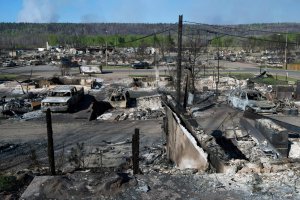
The aftermath of the McMurray fire. Image by Chris Schwarz/Government of Alberta via Flickr Creative Commons
On 3 May 2016, wildfire swept through the community of Fort McMurray in Alberta, Canada. The fire was devastating in its size and ferocity. The entire city had to be evacuated, with upwards of 100,000 people fleeing in the largest evacuation in the province’s history. The necessary speed of the evacuation left very little time for residents to pack belongings and caused children and parents to become separated as children were evacuated directly from schools. No one was able to return home for almost a month. The fire destroyed over 2,000 homes and buildings, with many more declared unsafe and uninhabitable.
Two years on, the effects of the fire are still being felt. Many people never returned to the city. Many continue to struggle with the fire’s impact on their lives emotionally, financially and practically. Some are still rebuilding their homes, still negotiating with insurers.
Yet amidst the trauma, the resilience of the community is also evident. The community is rebuilding itself. And from the outset the local Anglican church has been an integral part of the healing process.
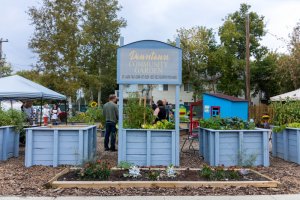
The Community Garden Image: Will Whiston
One project the church has been involved with is a community garden, built on the property of All Saints’ Church. The Revd. Dane Neufeld, rector of All Saints’, writes, ‘The garden was built in collaboration with the YMCA and many other donors and community members, who saw the importance of making a beautiful space in the downtown and creating the opportunity for people to come together to build something new and living in the wake of the fire’s destruction. The garden committee, made up of Church and community members, has hosted numerous events for families and children and workshops for gardeners. Many people in the neighbourhood use it as a place to sit, relax and enjoy…. We are very grateful for the ways that the garden has drawn people together. The visual effects of the fire remain with us every day. The once beautiful and lush river valleys of Fort McMurray have been dramatically altered so it has been a source of joy and renewal to be engaged in the planting and beautifying of a once vacant lot.’
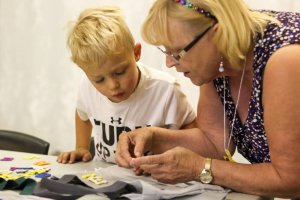
Summer camp
The Church has also run summer camps, designed to help children recover and readjust after the trauma of the fire and subsequent evacuation. ‘Parents expressed deep gratitude that the camps offered them some respite time and relaxation, confident in the knowledge that their children were having fun in a safe and spiritually enriching environment,’ said the Rev. Lesley Hand, Executive Director of On Eagles Wings, which partnered with the church to deliver the camps.
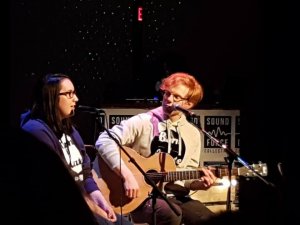
Youth music event Image: Will Whiston
Another initiative was the creation of a youth recording studio and music program through a local high school. Revd. Dane Neufeld writes, ‘This past fall the first youth event was held where young people were invited to share their musical and other artistic gifts, many of which expressed thoughts and emotions related to the fire. It was a powerful and healing event for all involved and we were grateful to have played a part in its creation’.
The local church has been supported in their endeavours by the wider Anglican family in Canada and beyond. In the wake of the fire many people donated to the PWRDF, the Canadian Anglican response for emergency relief. Money from PWDRF has been used to help fund the initiatives above. It has also been used to help uninsured and under-insured people with living expenses, providing crucial assistance. Generosity has also been shown to and by many other organisations, including Episcopal Relief & Development.
You can read more about PWRDF’s response to, and coverage of, the Fort McMurray wildfire here.
Please share your stories with us: anglicanalliance.comms@aco.org

